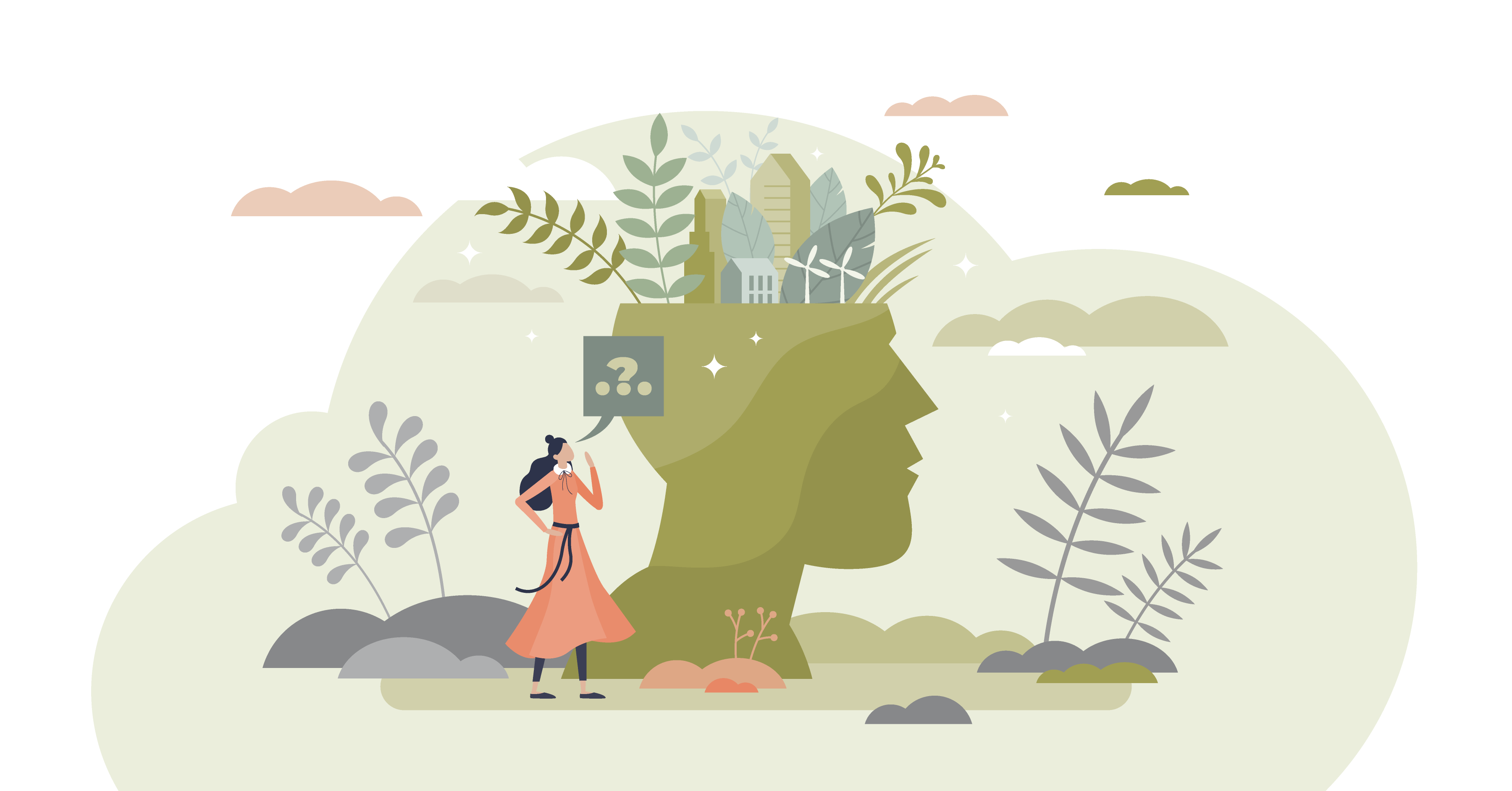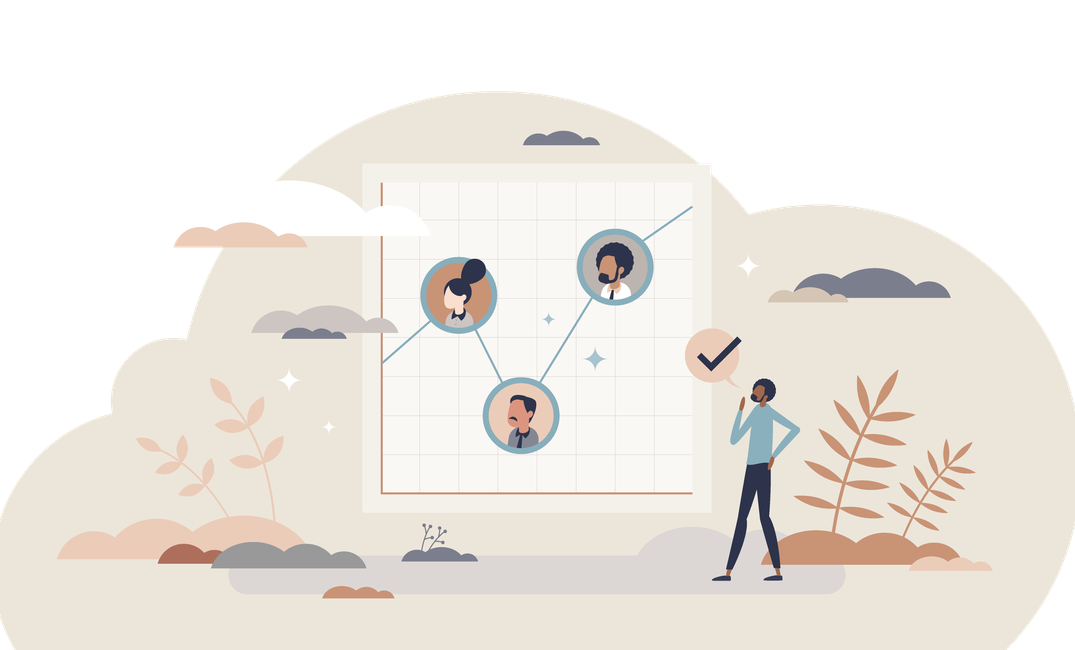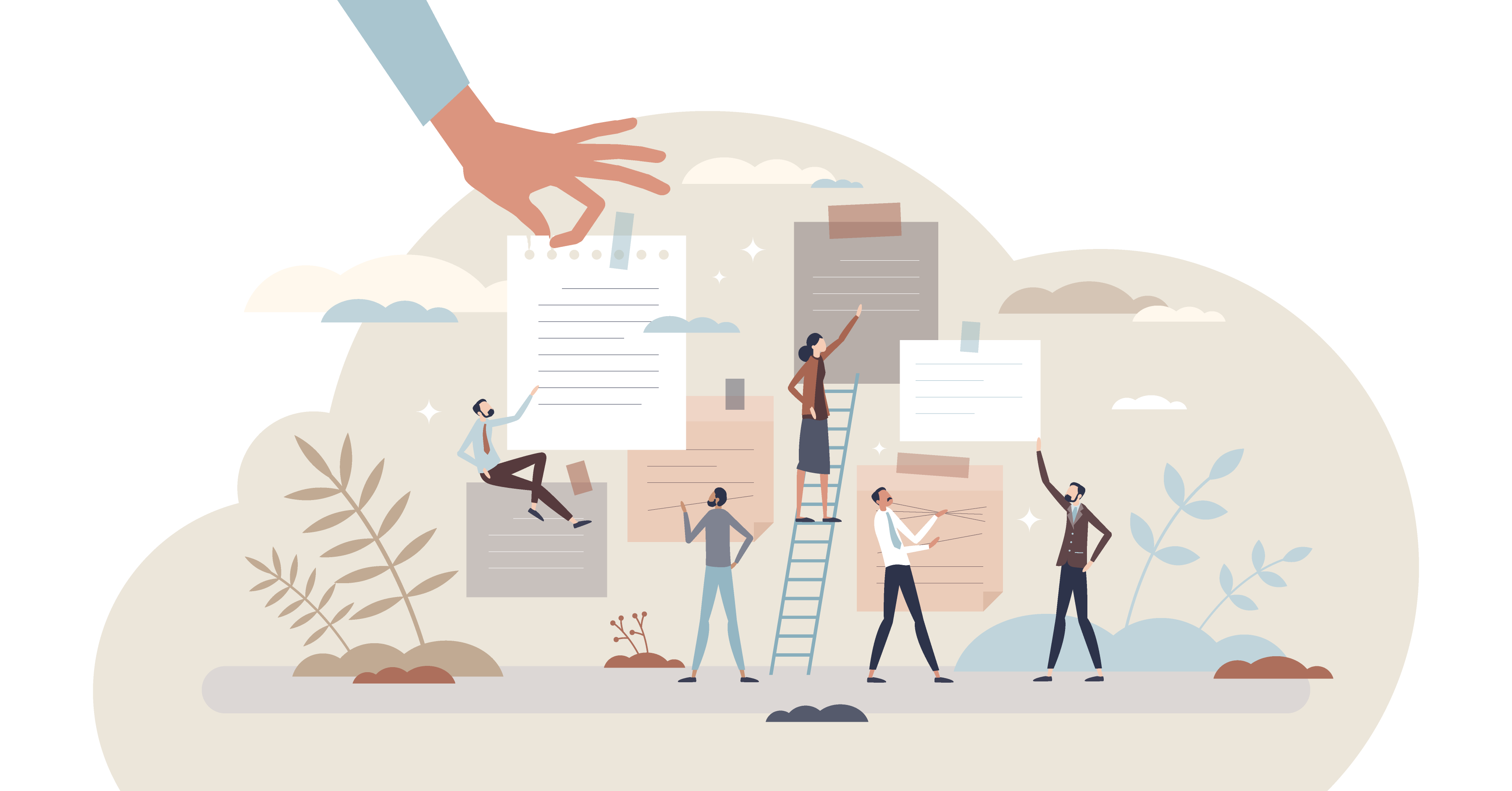Table of Contents
networking: "forming business connections and contacts through informal social meetings"; Collins English Dictionary, 2022 edition.
For once I have to disagree with my dictionary. Networking is not only about business and it doesn't only happen through 'informal social meetings'. That being said, I'm also going to start this newsletter by saying I am not an expert at networking.
Networking is probably the greatest hurdle for me to enter the realm of being a 'top researcher' and I suspect it may be for many others. But it doesn't have to be. The more I go through my research career, experience various networking events, do networking training and read about networking, the more comfortable I feel about the whole process. And the more I write about it, the more I understand 80-90% of the work is in the preparation and follow-up, not the dreaded networking situation itself.
This newsletter is not going to go into why we need to network as I think we all know how important it is to have a great network of people. Instead I'm going to explore what networking is and three strategies I use - and need to improve - to survive and grow in any networking situation.
So what is networking really?
I get told I'm succinct and to the point - although maybe less so in writing... . You see, I just want to say what I want and find out what they want and go from there. But building networks, or as I like to see it because I'm a plant person, cultivating relationships is more than that. It's about finding out shared values, identifying what you have in common and what you can offer them i.e. being able to make your 'million dollar offer'. It's about being friendly and making them feel welcome in your professional circle without them needing to put in too much effort. I mean we all love getting unprompted emails telling us how wonderful we are, don't we?
Imperial College London says; "[Networking] is a reciprocal process: you offer something to the community and ‘pay in’ and you take things and have benefits in return."
In many cases, but certainly not all, you need to be able to offer something the other person needs, in a way that's cost effective for yourself.
You can be an extrovert and be bad at networking. Just because someone is a natural conservation starter does not mean they feel comfortable talking about themselves or asking for what they need. And conversely introverts, and autistic people, can be good communicators, just through learning some of the tricks of the trade to overcome the barriers when it comes to initiating and developing relationships.
Networking is separate from 'making friends' - although this will happen with the most valued people in your network. It's separate from 'being sociable' - although this helps conversational flow.
Networking, can be easier than socialising. This is because people tend to recognise that introversion is not a precursor for 'not a useful person' even though it is a precursor for 'not a sociable person'.
Therefore social conversation is distinct in many ways from professional networking conversation. Until recently, I didn't really appreciate this separation. Now I do, it means I can work out strategies and coping mechanisms to better navigate the two.
And that's what I want to share with you in this post; some of the things I've read, found useful or am working on. Because these things are always a work in progress!
How to network boils down to three major components
Ultimately, I think networking falls into three major strategies; 'practise makes perfect', 'define your best self', and 'set yourself up for success'. There is cross-over between them, but the beauty about them, is they can all be honed, mostly out with the actual networking situation itself. Bonus for me, and for you.
Practise makes perfect
I think of networking as a bit like growing a plant. We sow the seeds, the seed germinates, it starts off as a small seedling and it develops into any one of several hundred thousand plant species. Remember that not all seeds germinate and not all plants bloom, but that doesn't mean we shouldn't sow them in the first place. The best thing is, just like growing plants which gets better with practise and experience, so too does networking.
Because networking is a typically fearful situation, practising networking can feel like the worst-thing-ever. But we can work on reducing our flight or freeze response by practising a natural, elevator-style pitch of different lengths and for different audiences. It is much easier to roll something off you have imprinted into your long term memory, rather than panicking about what to say when you are caught in the headlights. Focus on who you are rather than what you are, the problems you are trying to solve and where you are heading to next rather than how many awards you have, or articles you've published. Passion is contagious so aim for that.
We can also practise asking more questions in our daily lives, listening more actively and putting ourselves in more situations where we need to network.
For example, I had two networking courses over the last couple of weeks. I had to force myself to attend both, but I was so glad I did because it gave me a chance to practise networking in a situation where others are also open about how the barriers of networking. I could also practise my elevator pitch.
We can also practise our curiosity. Networking is less about promoting ourselves, and more about finding out what the other person needs. To do this we need to be curious about what it is they do. Once we have identified that need, the challenge is to then work out how to fulfil that need, either now or most importantly, in the future.
If you are a PhD student and you approach a high-flying academic, whilst they may be polite during the encounter and curious to hear about what you do, chances are they don't need anything from you at that moment (though they may know someone who does). As such the relationship is unlikely to develop much further until this need arises. What does matter is the seed you've planted in their mind. These seeds can remain dormant for a very long time. As you continue to practise your research - publish, attend conferences and workshops, apply for jobs, and build your network - that seed may germinate and that's when cultivating the relationship is especially important. We all need to nurture our plants right? That germination stage is especially prone to dying out, so that's why we also need to practise the cultivation stage.
And we can practise the cultivation stage on the networks we already have in place. Emails, social media, meeting up at conferences, arranging visits, phone calls and even old fashioned letters are all great ways to keep your network fed and watered.
Define your best self
I'm going to use some books I have read to illustrate this strategy which is to have a realistic expectation of yourself by understanding how your best self operates. Not your 'perfect' self, future self, or an unrealistic version of you, but how you are in your best moments.
'Fake it until you make it' is one strategy many recommend using to embolden ourselves during networking sessions, or 'put on your Batman cape' as Ali Abdaal describes it in his book, 'Feel Good Productivity'*. But John Lees, author of 'The Success Code'* says that this can be an exhausting strategy. I think this is particularly potent for neurodiverse people who have developed the practise of masking; a mask over a mask is a recipe for disaster.
So Lees says instead to 'define your best self' and take small steps to get there.
I also want to share a quote from Ben Hardy's book 'Personality Isn't Permanent'*;
"In order to actively create new experiences and be transformed by them, you’ll need to become more psychologically flexible. Psychological flexibility is the skill of being fluid and adaptive, holding your emotions loosely, and moving toward chosen goals or values. You need psychological flexibility to reframe your past and imagine a future self. The more flexible you become, the less you’ll be overwhelmed or stopped by emotions. Instead, you’ll embrace and learn from them."
I mean it's easier said than done, but Hardy's point is that we don't have to stay the same. If we become fixated on our past personality and behaviours, we are doing ourselves a disservice. By recognising personality is situation and time dependent, we can take actions to improve our networking personality. However Hardy places a much stronger emphasis on 'future us' than Lees so we should perhaps use the idea of a future self more as orientation rather than a framework on which to act. By looking at occasions when, to put it frankly, we think we were pretty awesome, or 'nailed it' in the past, its a much more realistic way to understand how we could be realistically better in a networking situation now or in the future.
This resonates in research by Raj et al. (2017) who found that networking is more likely to happen if our identity recognises the importance of having or creating a network. Most of that identity development comes from how you view networking - as good or bad - relevant to how likely you are to undertake networking as a result of that view. In other words, does networking underpin who you are?
If we can build positive views of networking and the need for networking into our best selves, then it we are probably going to end up with a better networking experience.
And here enters the last strategy.
Set yourself up for success
Arguably setting yourself up for success is similar to the first strategy, 'practise makes perfect'. But this is more about the things to do before, during and afterwards to make sure you're starting with the best foot forwards. By putting a relatively simple plan into motion we can set ourselves up to be successful.
Fail to plan, plan to fail.
Here's some things we can do before the networking event:
- Wear something you feel confident in. Simon Phillips who authored the excellent 'The Complete Guide to Networking'*, says we should wear something that makes us memorable. Maybe don't go too crazy, but he has a point. Think about something personal you possess, do, wear etc. that you can exploit. For example, if you work on mushrooms, a mushroom-inspired jumper or tie could be a great idea.
- Eat something healthy that feeds your brain and improves your stress resilience. We all know how sluggish we feel after a processed, carb-heavy, fried meal so try not to make that mistake before you take on the networking challenge!
- Arrive early to scope out the venue and start relaxed.
- Identify who is going and who you would like to speak to and what you want to say to them ⬅ very important
- Have a list of things to say and questions to ask or things you are curious about. Gem up on current events, especially those related to your networking event. Lees says to "work on smarter questions to get people talking". Struggling? Consider these conversation starter cards by The Diary of a CEO team.
- Know what your values are and what you can offer to the people you speak to. Similar to the above section on identity and personality, how can you interpret these to your advantage? You will most likely have a unique blend of experiences, skills and knowledge so understand how to make the most of it.
- Have an elevator pitch of varying lengths and formalities ready from the get go
And during the event:
- Find groups with odd numbers of people, because conversations tend to happen more naturally in pairs
- If you feel nervous, remember it takes practise. Lees says "good communicators know how to suppress their mood and control their emotion in a conversation." Ease yourself in gently and go for small wins. Be truthful to yourself. I mean you can try being a mask wearing super hero if you want, but make sure it's you under there.
- Talk to someone standing on their own. They'll be grateful and feel happy if nothing else.
- Open with something common in your environment or your situation. Was the food good? If anything fails to materialise, there's always the weather..., or the venue. Ideally, make it an open ended question. That is it requires them to consider an answer.
- Turn it into a game. Give yourself points when you talk to people. See if you can find out the weirdest thing you can about someone. Aim to curate a list of books. Find people to go on a walk with before or after the conference - pre or post event meetups are especially good for sports people - running, hill walking, swimming, rock climbing etc.
- Have breaks. Fresh air is good to clear your mind in between intense networking moments.
- Make the other person feel good about themselves.
- Leave your conversation on a cliff hanger and make sure to arrange the next connection point e.g. a future conference, coffee break or talk.
- Get their contact details and/or business card. LinkedIn connections are also good. Where do they work?
Plus, don't forget the things to do after the event:
- Plan in down time, especially if you need quiet time to recover after a busy day.
- Reflection time, writing down your thoughts, what went well, what didn't and where you think you could improve. Crucially, make notes about how people approached you (or conversations you overheard); what did you like or not like about their conversation starter?
- Add people you spoke to into a directory. Make notes of what they looked like - maybe find a photo online - where they work, and ideally their contact details.
- Contact the people who you resonated with the most a few days after the event.
In addition to the networking events I mentioned above I also had to force myself to speak to a visiting researcher. A few days before I spent some time reading her work and finding out who she was. I even sent her a message on LinkedIn as I realised we had met briefly before. This meant during the event, it was easier to find areas to connect on. It's now a few days after the event, so come Monday I'm going to send a follow up email to say how lovely it was to meet her.
With these strategies above, I'm definitely getting better, but there is still a long way to go.
Try this template to help work out your networking strategy:

What to read more? Try "The Complete Guide to Professional Networking: The Secrets of Online and Offline Success"* by Simon Phillips and Simon Ellinas. It's got some great networking tips and a huge variety of quotes from people with fun caricatures of the quotees.
This Week In Writing; 🥗 Snack Writing
This week I've been trying 'snack writing' as an alternative to 'binge writing'. This well known phrase refers to how long we spend writing at any one point in time. If we're snack writing, we're doing it in short bursts in between other things. Binge writing is when we have one big long, uninterrupted session.
Many of us dream of long periods of uninterrupted writing time, but the reality is it hardly ever materialises. Therefore we need to get used to writing little and often. Snack writing takes practise because it takes time to task switch and even more time to 'get in the flow'. As a general rule I try to limit my task switching, but since I know it is inevitable in a research career, I'm training myself to run shorter task periods. Working with parental commitments also requires me to be more flexible in how I work and when I work.
Furthermore as researchers, we are encouraged to read and write every day. But this can be very hard to fit around lab and field work for example. I've been pretty lax with this, but as my thesis due date looms on the horizon, I thought it better to cultivate the habit now.
In terms of how my snack writing has gone this week? I think it has gone remarkably well; in 2hr 45 minutes I wrote over 1300 words and I combined one of the sessions with reading a couple of papers too. It doesn't sound like much, but it adds up to most of the word count of a thesis over the time I have left.
Want to network? Get in touch with the form below (this form may not work via email, so here's the web version of this post: 🧠 Brain STREAM 17: Networking (😱) )
Until next week!
Annette
*I use affiliate links from time to time in this newsletter because every penny counts. It doesn't cost you anything extra. Thanks for supporting me.









Comments